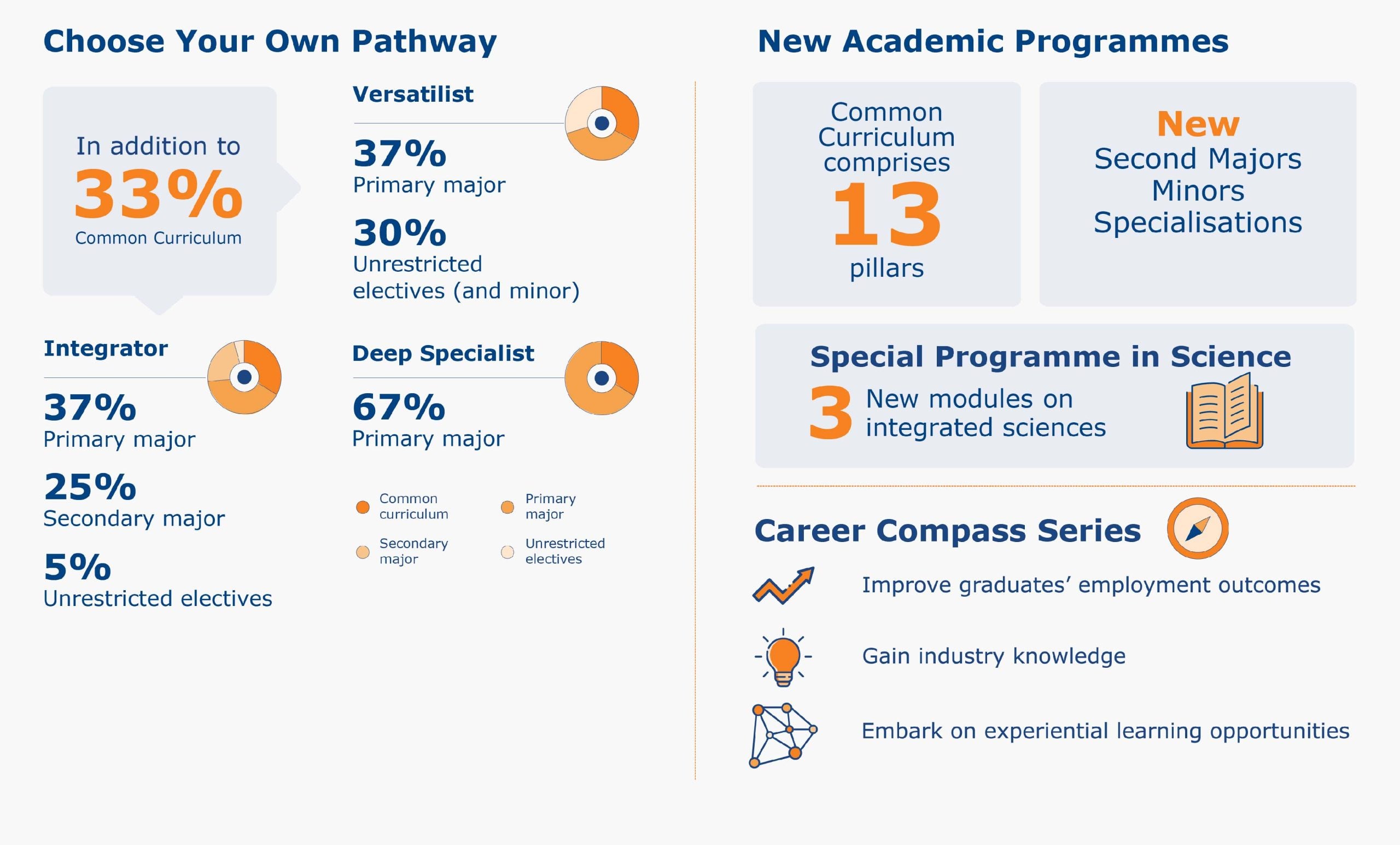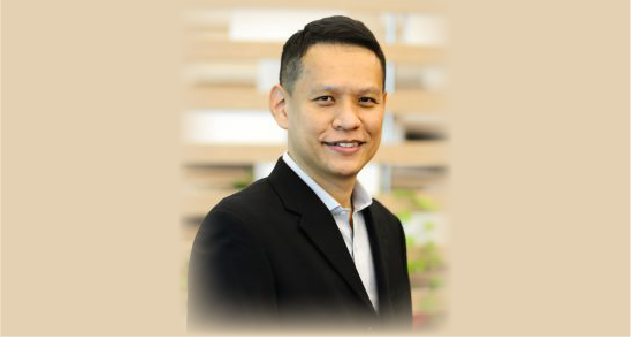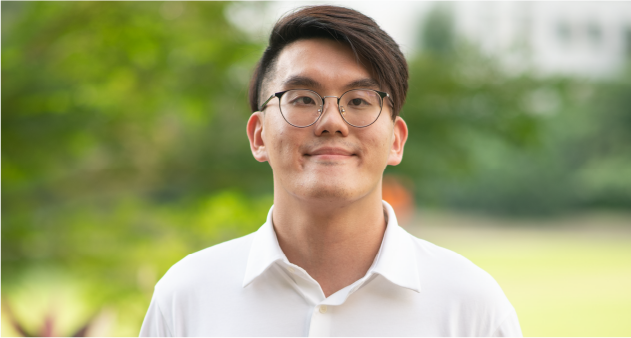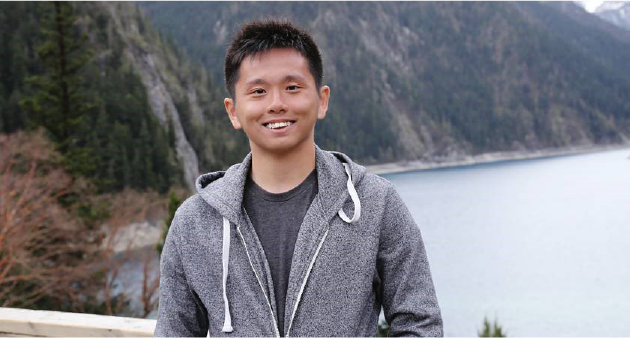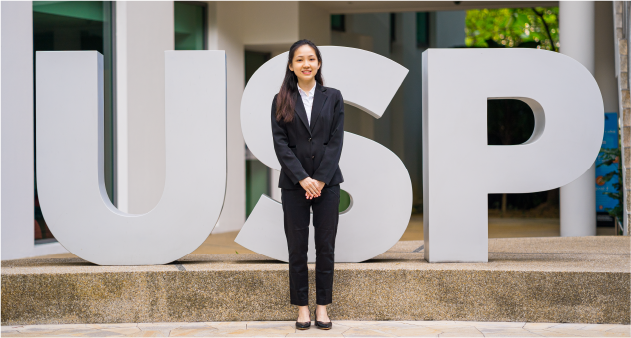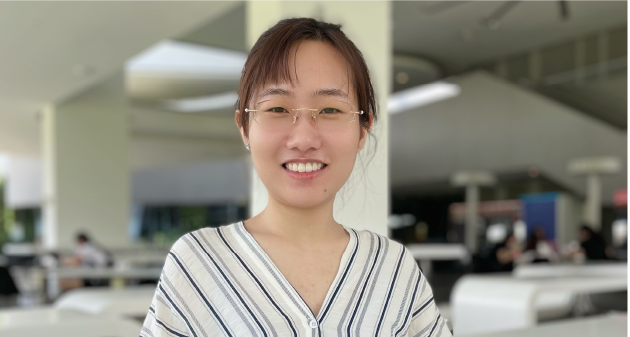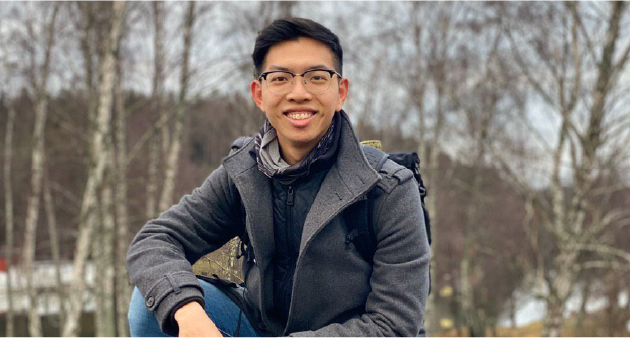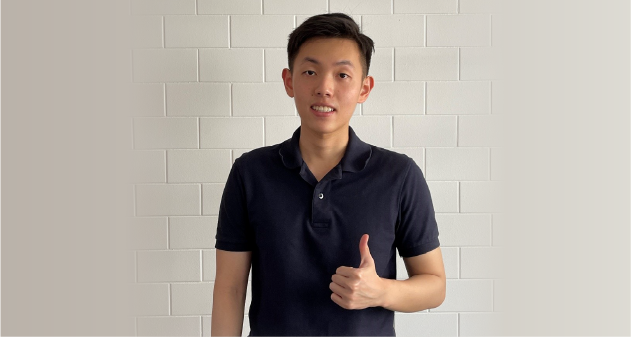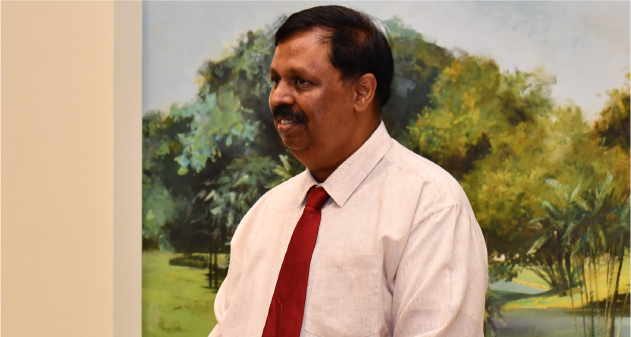Shaping Future Talent

Developing future-ready talent
Bringing science to youths
The Faculty and our partners run pre-undergraduate research programmes, competitions, workshops, school visits, talks and the Faculty Open House to promote interest in science and encourage students to read science at NUS.

33rd e-Science Research Congress (2021)
The Science Research Programme (SRP) culminated in the virtual Science Research Congress on 30 April 2021, drawing budding scientists who got to work alongside scientists on Science, Technology, Engineering and Mathematics (STEM) research. The video conference showcased research findings of 88 students from 13 junior colleges and Integrated Programme schools. A total of 20 projects clinched awards at the Singapore Science and Engineering Fair in May 2021, garnering seven Gold, three Silver, six Bronze, four Merit and five Special Awards.

Practical Communication in Science & Math Outreach
Undergraduates in the Faculty’s Young Educators in Science (YES) programme mounted a Design-Your-Own-Module (DYOM) that focuses on practical communication skills in science education and public engagement. After a series of training activities, they designed their own science outreach activities with their peers. The activities are subsequently used in workshops for visiting school students, at booths for visitors in Science Centre Singapore and as online activities for families.

Sci@home
The Science Demonstration Laboratory and YES developed several hands-on science kits for the community, underprivileged groups and international participants during the pandemic. These kits are augmented by online engagement sessions by staff, and YES students and alumni. We have distributed 2,000 kits to 1,200 students from 24 organisations and 11 countries.
Grooming future-ready graduates
The Faculty continually redesigns and enhances our academic programmes to equip students with the relevant knowledge and skills for the modern workplace.
College of Humanities and Sciences

The College of Humanities and Sciences (CHS) was launched on 8 December 2020 to provide an enhanced undergraduate experience for students of the Faculty of Science (FoS) and the Faculty of Arts and Social Sciences (FASS).
CHS’ new interdisciplinary approach emphasises the synthesis of ideas and perspectives from different disciplines which are integral to problem-solving. Students enjoy unprecedented flexibility in charting their own learning journeys, as they can pursue breadth and depth through any combination of majors, second majors, minors and specialisations offered by both faculties and beyond.
We launched two Cross-Disciplinary Programmes (XDPs) in Data Science and Economics, and Environmental Studies, as well as new second majors, minors and specialisations, a new Scientific Inquiry module and 13 Common Curriculum pillars to impart essential skills and intellectual foundations.
CHS at a Glance
The carefully curated Common Curriculum, which includes NUS’ General Education pillars, comprises 13 connected pillars. These impart essential foundational skills in literacy and numeracy, broaden intellectual foundations through exposure across the humanities, social sciences, scientific inquiry and Asian studies, and provide interdisciplinary insights through higher-level modules. New modules were specially created for the Common Curriculum, including How Science Works, Why Science Works, Artificial Intelligence and Society, and Computational Thinking for Life Sciences.
We launched many new academic programmes to broaden the repertoire offered to students. These include a Second Major in Quantitative Finance and Second Major in Pharmaceutical Science. New Minors offered include Astronomy, Chemistry, Data Literacy and Analytics, Meteorology and Climate Science, Nutrition, and Physics in Technology. There are also new specialisations in Chemical Research, Food Science and Technology Research and Innovation, Operations Research, Pure Mathematics, and Statistical Methodology.
The Special Programme in Science (SPS) developed three new modules for CHS students to read integrated sciences. These modules can be used to fulfil the Writing, Digital Literacy and Scientific Inquiry I requirements of the CHS Common Curriculum.
We also launched a Career Compass Series for CHS students to improve our graduates’ employment outcomes. The modules formalise the relationship between career advisors and students, and provide a checklist of essential career-centric tasks through the student’s four-year undergraduate journey. These include gaining industry knowledge, acquiring career-launching soft skills, and embarking on experiential learning opportunities. This initiative is undertaken together with FASS and NUS’ Centre for Future-ready Graduates (CFG). Find out more here.
Experiential learning
Our students can also opt to experience immersive and interdisciplinary learning beyond their academic majors.
Learning at Residential Colleges
Click on image
Poh Yong Rui
Year 4, Chemistry
“By working together with peers from different backgrounds and disciplines, I learnt how multifaceted the world is and how different viewpoints improve the quality of ideas.”
POH Yong Rui was part of the Residential College 4 (RC4) community under the University Town College Programme (UTCP) where he learnt to apply systems thinking for problem-solving.
This led to two modelling projects, one on the impact of electric vehicle usage on the environment and the other on Singapore’s e-commerce retail scene.
Ong Sze Yi (left) &
Su Ching Ting (right)
Year 2, Pharmacy and Pharmaceutical Science
“From ideation to prototype design and development, we learnt to translate our team’s diverse knowledge into a product that was well-received by the community.”
To reduce contamination rates of recycling bins, Year 2 students ONG Sze Yi, Pharmacy and SU Ching Ting, Pharmaceutical Science, worked with an interdisciplinary team of students at Ridge View Residential College (RVRC) to invent a user-friendly bottle-and-can rinser that can be easily cleaned before recycling.
This initiative was part of RVRC’s Design-Your-Own-Module (DYOM), which encourages multidisciplinary work and independent experiential learning.
Victor Zhu
Fresh Quantitative Finance graduate
“I learnt to appreciate how boldness is a rare but necessary commodity in bringing about the change that I want to see.”
Victor ZHU and his like-minded friends at Ridge View Residential College (RVRC) co-founded Hatch, a training academy to make digital education accessible to all. The insights he gained on social innovation at RVRC shaped his philosophy as an entrepreneur.
Hatch cocreates programmes for specific groups, provides end-to-end training and facilitates job and internship placements to help jobseekers.
Ong Sze Yi (left) &
Su Ching Ting (right)
Year 2, Pharmacy and Pharmaceutical Science
“From ideation to prototype design and development, we learnt to translate our team’s diverse knowledge into a product that was well-received by the community.”
To reduce contamination rates of recycling bins, Year 2 students ONG Sze Yi, Pharmacy and SU Ching Ting, Pharmaceutical Science, worked with an interdisciplinary team of students at Ridge View Residential College (RVRC) to invent a user-friendly bottle-and-can rinser that can be easily cleaned before recycling.
This initiative was part of RVRC’s Design-Your-Own-Module (DYOM), which encourages multidisciplinary work and independent experiential learning.
Internships
Our students have numerous opportunities to put what they learn into practice through internships, where they gain hands-on experience at the workplace.
Undergraduate Professional Internship Programme (UPIP)
Undergraduate Professional Internship Programme (UPIP)
“My experience provided the bridge between theories and concepts and real-life practices.”
Year 2 student JIAO Zijin, who reads Double Majors in Pharmaceutical Science and Chinese Studies, developed an interest in the commercial aspects of bringing healthcare products to the market.
She had the opportunity to intern at biotechnology company MiRXES, where she was involved in research, managing campaigns and creating marketing assets for MiRXES’ infectious disease products.


“The hands-on practice enhanced my research skills and broadened my networks in the field of agriculture.”
Ardent nature lover LIEW Yong Xuan, Year 3, Life Sciences, interned at indoor urban farm Artisan Green where he designed research experiments, analysed data to enhance plant yield in the next growth cycle, and assisted farm operations such as seeding, transplanting and harvesting.
He was inspired to read a tropical horticulture module after this experience and plans to pursue a career in this field.
Global education
Our Study Abroad Programmes open the door to a global learning experience. Our students gain exposure to different academic environments and cultures, which broadens their intellectual and global outlook.
-
Joint Degree Programme in Life Sciences with University of Dundee (UoD)
“It was tremendously enriching to venture into the new and unfamiliar.”
For her Final Year Project, Vanessa AW, Year 4, Life Sciences, developed a novel method to more accurately determine the intrinsic clearance of metabolically stable compounds, to facilitate the progression of drugs studied at UoD’s Drug Discovery Unit. She also took on co-curricular leadership positions where she worked with international students in a non-academic setting. -
NUS Overseas Colleges (NOC) Israel
“The NOC experience is an important step to help me transform my passion to create a startup into reality.”Watch Video
CHUA Cheng Ling, Year 3, Data Science and Analytics, is passionate about entrepreneurship and hopes to eventually “build something beneficial”. He joined NOC to understand Israel’s vibrant international technology scene, and its culture for innovation and chutzpah. He gained a good grasp of the market research and validation process, and deepened his technical expertise in data science for the financial technology sector. He also learnt how to work with people from diverse backgrounds. -
NUS Overseas Colleges (NOC) Shanghai
“I interned at an insurtech company, which opened my eyes to hustling in a totally different startup ecosystem.”
Fresh Chemistry graduate Christine NG is building a dating application (app) where role-playing game elements are integrated into the user journey to make the dating experience more immersive. Previously, she established a startup to formulate personal skincare products for sensitive skin. At NOC, she learnt how to build a minimal viable product through hands-on modules, which taught her the thinking processes behind entrepreneurship. She also picked up additional skills such as UI/UX designing. She is now applying her learnings to her business. -
Student Exchange Programme (SEP), Hanyang University
“Take a step and venture abroad. It is probably better than you imagine!”
Clement YUNG, Year 3, Mathematics, enrolled in the SEP to experience winter classes. In spite of the unfamiliar academic environment, he found the experience “unexpectedly enjoyable”. He gained insights on different ways of teaching and learning and he also discovered a world beyond academics in exploring the campus and beyond. His positive experience at Hanyang University inspired him to participate in online SEPs at Boston University and the University of Toronto.
Click on image
-
Joint Degree Programme in Life Sciences with University of Dundee (UoD)
“It was tremendously enriching to venture into the new and unfamiliar.”
For her Final Year Project, Vanessa AW, Year 4, Life Sciences, developed a novel method to more accurately determine the intrinsic clearance of metabolically stable compounds, to facilitate the progression of drugs studied at UoD’s Drug Discovery Unit. She also took on co-curricular leadership positions where she worked with international students in a non-academic setting. -
NUS Overseas Colleges (NOC) Israel
“The NOC experience is an important step to help me transform my passion to create a startup into reality.”Watch Video
CHUA Cheng Ling, Year 3, Data Science and Analytics, is passionate about entrepreneurship and hopes to eventually “build something beneficial”. He joined NOC to understand Israel’s vibrant international technology scene, and its culture for innovation and chutzpah. He gained a good grasp of the market research and validation process, and deepened his technical expertise in data science for the financial technology sector. He also learnt how to work with people from diverse backgrounds.
-
NUS Overseas Colleges (NOC) Shanghai
“I interned at an insurtech company, which opened my eyes to hustling in a totally different startup ecosystem.”
Fresh Chemistry graduate Christine NG is building a dating application (app) where role-playing game elements are integrated into the user journey to make the dating experience more immersive. Previously, she established a startup to formulate personal skincare products for sensitive skin. At NOC, she learnt how to build a minimal viable product through hands-on modules, which taught her the thinking processes behind entrepreneurship. She also picked up additional skills such as UI/UX designing. She is now applying her learnings to her business. -
Student Exchange Programme (SEP), Hanyang University
“Take a step and venture abroad. It is probably better than you imagine!”
Clement YUNG, Year 3, Mathematics, enrolled in the SEP to experience winter classes. In spite of the unfamiliar academic environment, he found the experience “unexpectedly enjoyable”. He gained insights on different ways of teaching and learning and he also discovered a world beyond academics in exploring the campus and beyond. His positive experience at Hanyang University inspired him to participate in online SEPs at Boston University and the University of Toronto.
-
Joint Degree Programme in Life Sciences with University of Dundee (UoD)
“It was tremendously enriching to venture into the new and unfamiliar.”
For her Final Year Project, Vanessa AW, Year 4, Life Sciences, developed a novel method to more accurately determine the intrinsic clearance of metabolically stable compounds, to facilitate the progression of drugs studied at UoD’s Drug Discovery Unit. She also took on co-curricular leadership positions where she worked with international students in a non-academic setting.
-
NUS Overseas Colleges (NOC) Israel
“The NOC experience is an important step to help me transform my passion to create a startup into reality.”Watch Video
CHUA Cheng Ling, Year 3, Data Science and Analytics, is passionate about entrepreneurship and hopes to eventually “build something beneficial”. He joined NOC to understand Israel’s vibrant international technology scene, and its culture for innovation and chutzpah. He gained a good grasp of the market research and validation process, and deepened his technical expertise in data science for the financial technology sector. He also learnt how to work with people from diverse backgrounds.
-
NUS Overseas Colleges (NOC) Shanghai
“I interned at an insurtech company, which opened my eyes to hustling in a totally different startup ecosystem.”
Fresh Chemistry graduate Christine NG is building a dating application (app) where role-playing game elements are integrated into the user journey to make the dating experience more immersive. Previously, she established a startup to formulate personal skincare products for sensitive skin. At NOC, she learnt how to build a minimal viable product through hands-on modules, which taught her the thinking processes behind entrepreneurship. She also picked up additional skills such as UI/UX designing. She is now applying her learnings to her business.
-
Student Exchange Programme (SEP), Hanyang University
“Take a step and venture abroad. It is probably better than you imagine!”
Clement YUNG, Year 3, Mathematics, enrolled in the SEP to experience winter classes. In spite of the unfamiliar academic environment, he found the experience “unexpectedly enjoyable”. He gained insights on different ways of teaching and learning and he also discovered a world beyond academics in exploring the campus and beyond. His positive experience at Hanyang University inspired him to participate in online SEPs at Boston University and the University of Toronto.
Enrichment programmes
Our students also have the flexibility to participate in diverse enrichment programmes where they learn how to positively grow their interests and skills to have a more robust understanding of their potential.
Providing inclusive and accessible education
We offer financial aid schemes and the generosity of our benefactors also has far-reaching impact. These initiatives provide equal opportunities to students of all backgrounds and enable them to fully benefit from the Faculty’s holistic educational experience.
Scholarships

Prima Group Gift
In May 2021, the Prima Group commemorated its 60th anniversary by gifting $3 million to support education and research efforts in food science and technology, to advance the food industry and bolster Singapore’s long-term efforts towards food safety and security. $2 million is allocated to establish the Cheng Tsang Man Professorship in Food Science and Technology to attract renowned academics to spearhead research. $1 million is dedicated for scholarships to encourage students to pursue food science and technology studies.

NUS Science-Seagift Merit Scholarship
In September 2016, LEE Kiow Seng, Chief Executive Officer, Seagift Food Pte Ltd, made a gift of $300,000 to set up the scholarship for Food Science and Technology (FST) undergraduates.
Year 4 student CHEW Ding Xiang was the first recipient of the scholarship. He graduated in June 2021.

Goh Choo San Science Merit Scholarship
SU Ching Ting, Year 2, Pharmaceutical Science, was the first recipient of the scholarship which recognises excellence in the performing arts.
The scholarship was named after GOH Choo San, a chemistry and biochemistry alumnus who achieved international acclaim as a dancer and choreographer.
Bursaries
The Science Student Fund (SSF) was established in 2008 to enable financially disadvantaged students to pursue their studies without financial worries.
The Science Student Overseas Exposure Fund (SSOEF) was set up in 2006 to enable financially disadvantaged students to participate in overseas programmes.
The Science Student Fund (SSF) Emergency Aid provides timely aid to students who encounter an emergency or unfortunate situation.
Serving the community
We continued to pitch in to support disadvantaged students, to ensure that education stays accessible to all. The difficult time during the pandemic also brought out the best in our Science community, many of whom stepped up to support students’ well-being.
Peer Supporting Peer Design-Your-Own-Module (DYOM)
The student wellness DYOM offers a unique experience for students to pursue their interests in mental health awareness. This module transforms participants into Peer Student Supporters (PSS), who can provide emotional support to help their peers deal with stress and challenges. As an Unrestricted Elective, this module also offers academic credits.

Jessica GANADHI, Year 2, Life Sciences, believes nobody should face life’s adversities alone. She joined the DYOM to learn to be someone her friends can lean on. She attended lectures which also covered role-playing and project ideation activities, and workshops to pick up listening skills. Thereafter, she started an Ultimate Journal platform to encourage students to express their emotions by penning down their thoughts. Around 400 students have received the journals.
“Helping others overcome the issues they face in their personal lives taught me that supporting someone in need is not only about encouraging them to improve, but also being present in whichever place they are in.”
Promoting a culture of lifelong learning
We encourage our graduates to upskill and reskill through executive and professional courses, to help them stay relevant in a fast-changing workplace. Others embark on postgraduate studies, contributing to the further advancement of science.
What our students say
Click on image
The MSc in Quantitative Finance prepares graduates to better understand and analyse complex models and products for the financial services sector.
Fresh graduate LIU Jialu said, “The courses in mathematics, computer science and economics provided a sound foundation in coding and higher level mathematical knowledge.”
The MSc in Chemistry provides the scientific foundation as well as advanced knowledge and skills for senior positions in the chemistry industry.
Fresh graduate Sirin Binte KAMARULZAMAN said, “I gained wider perspectives through the coursework modules and acquired hands-on laboratory skills.”
The MSc in Data Science and Machine Learning provides students with in-depth knowledge and skills to analyse and make sense of data to enable informed decisions.
GUO Qing, Algorithm Engineer, Alibaba Group, said, “The coursework and projects in data science, machine learning and deep learning are useful for careers in China’s growing internet industry.”
New Master’s (MSc) programmes
We introduced a suite of new industry-relevant MSc degree programmes for professionals who wish to upskill to remain economically competitive. We now offer more than 10 MSc programmes.
These include the MSc in Biodiversity Conservation and Nature-based Climate Solutions which equips students with deeper knowledge and skills related to conservation efforts, environmental sustainability and climate change solutions; the MSc in Biotechnology, which covers the diverse disciplines and applications in this field that are crucial to the modern world; the MSc in Chemical Sciences, which strengthens the scientific foundation in chemistry by providing advanced knowledge and skills for the chemical science sector; and the MSc in Physics for Technology, a multidisciplinary programme covering physics, photonics, electronics, materials science and computing to prepare students for the high technology sector.

Affiliated PhD programme

Dr JIN Xiaoxuan was part of the inaugural cohort of the NUS (Suzhou) Research Institute (NUSRI)-affiliated PhD programme, where she studies the effect of wheat bran fortification on the quality, chewing properties and digestibility of dried white noodles. She also works on a collaborative research project with NUSRI, COFCO Nutrition & Health Research Institute, The New Zealand Institute for Plant and Food Research Limited and Peking University Health Science Centre on the impact of ethnicity on glycemic responses to noodles.
“I built up knowledge and expertise to develop and evaluate functional foods, which are essential to start my career as a co-founder of a food technology company.”
Continuing education and training (CET) programmes

Professional Conversion Programme (PCP) for Engineers
“The course boosted my ability to link theoretical and actual problems with additional and accurate hypotheses. I also gained a keener sense of appreciation on failure analysis, specifically the analytical methods and limitations of sample preparations.”
The Department of Physics launched its first Professional Certificate in Advanced Techniques for Materials Analysis to help engineers advance their careers in manufacturing industries.
Timothy TANG, Engineering Manager, ams Sensors Singapore Pte Ltd, received his certificate from the inaugural run, which is part of the PCP for working professionals to progress in sectors with good prospects.

Executive Certificate (EC) programmes
The Department of Statistics and Data Science offered EC programmes to graduating cohorts of 2020 and 2021, under NUS’ Resilience and Growth Initiative, to complement their domain knowledge with data science competencies in preparation for the digital economy.
“I can now utilise artificial intelligence to optimise research productivity, for instance, by using an open-source machine learning software to automatically transcribe handwritten archival texts.”
History researcher Joshua GOH (left) enrolled in the EC in Data Mining and Machine Learning
“I can apply different data analysis and visualisation methods to solve workplace problems.”
Human resources executive Gareth TING (right) enrolled in the EC in Data Analytics and Data Visualisation
